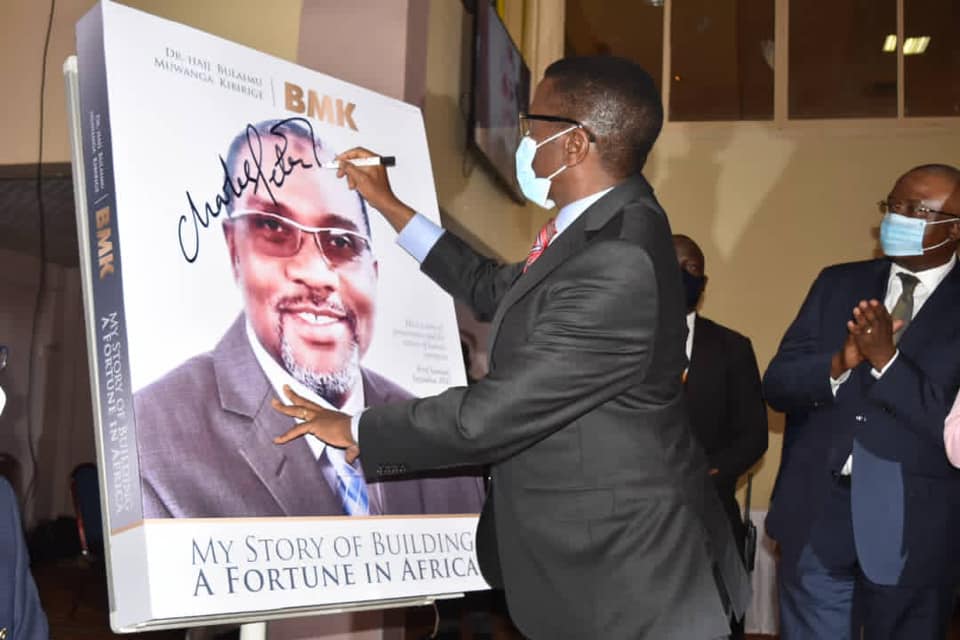URA CG, John R. Musinguzi during Absa post budget dialogue
By Francis Otucu
The Uganda Revenue Authority (URA) Commissioner General, John R. Musinguzi has said taxes are not meant to cripple businesses but rather share what belongs to the government so that a favorable business environment is created.
Musinguzi made the remarks on Friday while speaking at the Absa Post Budget Forum held at the Serena Hotel, Kampala.
“We are looking at improvement in the way we serve these two sectors (trade and manufacturing). We have come up with EFRIS (Electronic Fiscal Receipting and Invoicing Solution), a system that helps with assessment because whatever is done is transparently shared with us (URA). The Digital Tracking System (DTS) is another program we have come up with. There is more wisdom in every entity doing their part to pay tax other than dodging taxes. Taxes are not meant to harm businesses, they are meant to get a share that belongs to the Government so that a favorable business environment is created,” Musinguzi said.
The forum was conducted under the theme “Implications of the budget proposals on trade and manufacturing” with the aim of engaging stakeholders on the national budget.
Speaking at the same event, Absa Bank Uganda Board Director, George Opio said that the pandemic has created challenges for all sectors in Uganda. T, “We should move ahead and work at putting everyone into the tax bracket. We should work towards taxing the wealthy,” he said.
Mumba Kalifungwa, the Absa Bank Uganda Managing Director, said for one to be able to trade, “you need products and a market for the products. I think the way the budget is structured (in terms of programs) gives us clarity. There are several programs channeled towards the agricultural sector. I think that’s a commendable development. There are measures in the budget focused on refinancing UDB. This provides a basis for stimulating growth in the manufacturing sector. Such innovations are very important.”

He noted that the East African community is critical in the development and sustainability of Uganda’s economy.
“These are partners that present great opportunities, especially with Kenya and Tanzania. There is no doubt about the level of distractions created by Covid-19 pandemic at the local and global levels. We only saw recovery when the lockdown measures were eased in the second half of 2020. At the peak of the pandemic, we saw non-performing assets increase. There was stress experienced by various borrowers,” Kalifungwa said.
According to Patronella Namubiru, Associate Director at Deloitte Uganda, Trade and manufacturing have severely been affected by the pandemic.
“A lot of economies had positive growth pre-Covid-19. With the outbreak of Covid-19, there was a contraction globally. Africa’s GDP is expected to grow by 3.7%. These projections are based on the opening up of economies. As economies open up, there is an expectation that sectors like tourism will open up. This, however, depends on how we shall deal with the new variant that is coming up,” Namubiru said.
She added: “Manufacturing has continued to grow and diversify with new products. There was a switch in production lines as a result of disruption in the global supply chain. There was the development of e-commerce applications to facilitate transactions during periods of restricted movements.”
As a manufacturer, she advised, “you need to prepare for the global trade volatility and its effects on value chains, design your supply chains that are optimized for resilience and service, manage cash flows and consider your financing options.”
The Acting Country Director, TradeMark East Africa, Damali Ssali is happy that the government is focusing on agro-industrialization and capitalizing the Uganda Development Bank.
“I was happy to hear that the government is focusing on agro-industrialization in the coming budget. That focus is critical and in doing so, we have to look at the key products in the agricultural sector that we are exporting. I was happy to hear about the capitalization of UDB. This is key because several SMEs have been affected by the Covid-19pandemic and would need that finance from UDB,” she said.
As manufacturers, Daniel Birungi, the Executive Director at Uganda Manufacturers Association (UMA) said they are hopeful that the promise to rationalize expenditure is going to be a key focus in the coming financial year.
Kenneth Mugambe, Director Budget, Ministry of Finance, Planning and Economic Development said in terms of manufacturing, the ministry has looked at four strategic areas; providing social infrastructure as a manufacturing base, capitalizing of UDB, continuously supporting manufacturers and innovators and accessing the markets.
“We expect to hit the road running in terms of implementing the parish model. The model has seven pillars. We are going to focus on 3 out of the 7 in this budget. The key pillar is financial inclusion. The second key pillar we are going to focus on is streamlining administration at the parish level by recruiting the parish chiefs, community workers, etc. Data collection to be used for planning is the third key pillar we are going to look at when implementing the parish development model,” Mugambe said.





